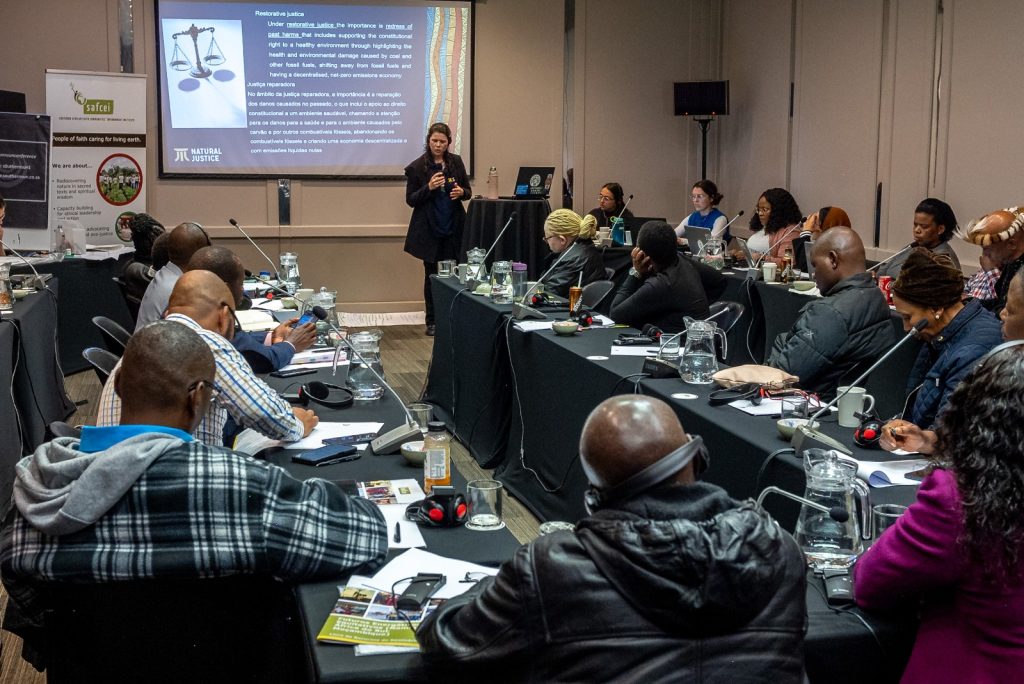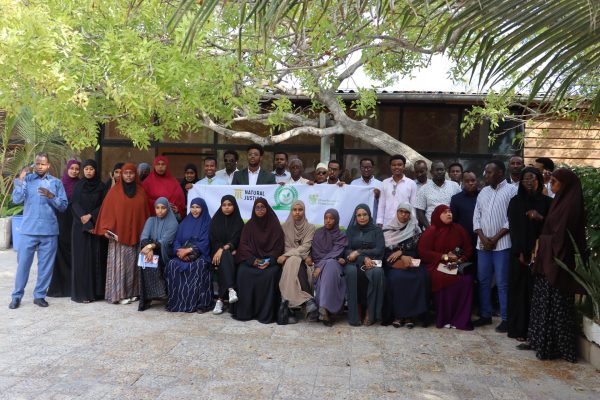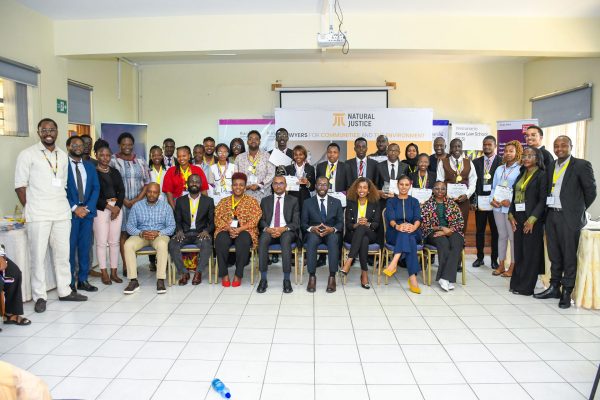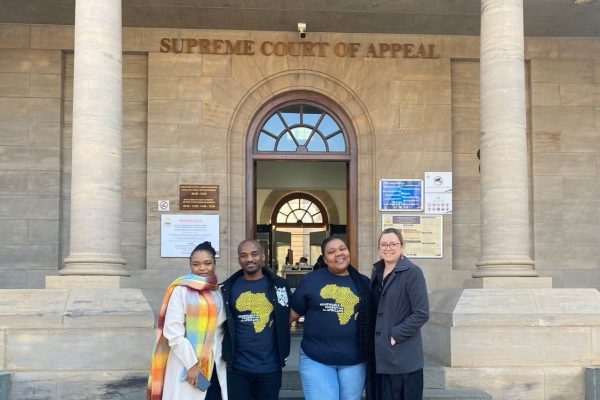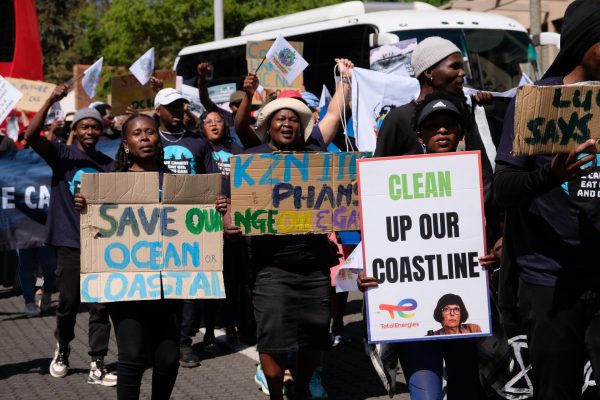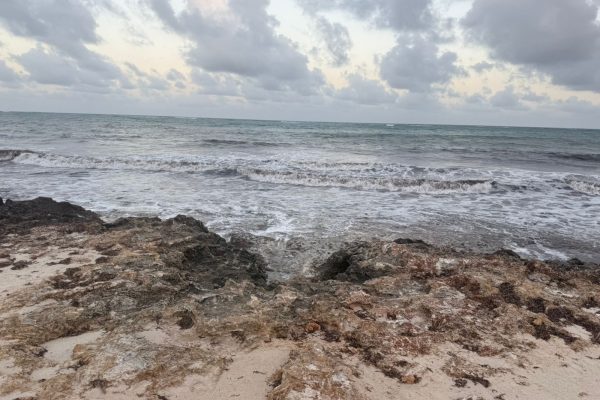A just energy transition requires strong public participation and access to information. This includes understanding climate science, the impact of different types of energy on communities and the environment, the national decision-making process on energy, and the concept of energy governance.
These critical issues were all discussed during the three-day regional Faith Leader Equitable Energy Futures workshop. It was held by the Southern African Faith Communities’ Environment Institute (SAFCEI) with participants from Mozambique, Namibia and South Africa during July 2024. The workshop was designed to strengthen the capacity of a regional faith community network by educating, mobilising and campaigning for a truly just energy transition.
One of the focus points was to hold decision-makers accountable and consolidate plans for just energy transitions.
As this was a gathering of faith leaders, a strong message that emerged was the belief that faith encompasses a responsibility to care for the Earth. This means rejecting energy sources that negatively impact the environment and finding energy solutions that are least harmful. A truly just energy transition must reflect this divine responsibility to protect the planet and its people, choosing paths that honour creation, rather than exploiting it.
The Climate Science
Understanding the basics of climate science is crucial for appreciating how to care for the earth.
Global warming is accelerating, with the last decade (2011 – 2020) being the warmest on record, leading to more frequent and severe weather events. This includes phenomena like “rain bombs” which impact agriculture and livelihoods. These rain bombs result from higher temperatures, causing the atmosphere to absorb more water, leading to heavier-than-usual rainfall, often followed by periods of drought.
According to the United Nations, climate change refers to long term changes to temperatures and weather patterns, which although may be natural, have been exacerbated by human activities. This has caused the problem of global warming, specifically caused by carbon dioxide emissions into the atmosphere.
Carbon dioxide emissions have been accumulating for over 100 years, with the industrial revolution and the global north’s development being the highest historical carbon emitters collectively, as illustrated by Climate Watch data. Africa has contributed only 4% of the total carbon emissions to date, but is disproportionately impacted by the effects.
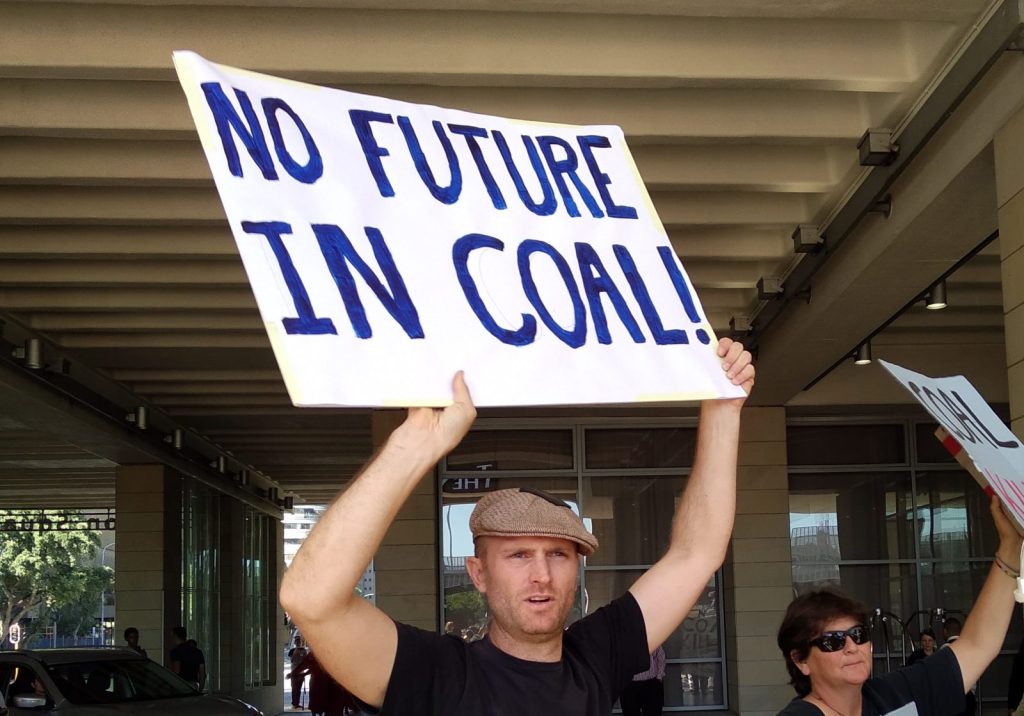
Important topics discussed at the workshop
The discussion in the workshop stressed the need for development that respects planetary boundaries and ensures equitable access to resources. It also emphasised the importance of reducing emissions at the source—primarily fossil fuel industries in the global north—rather than relying on mitigation strategies while continuing to burn fossil fuels. There was a strong call for international solidarity between the global south and north, while including the need for reparations for climate impacts.
Another topic of discussion was the issue of “false solutions”. There are numerous false solutions for just energy transitions being proposed, such as “clean” coal, liquefied natural gas, carbon capture and storage, geoengineering and nuclear energy. These do not address the root causes of climate change and can often exacerbate existing problems.
Scientists have shown the negative environmental impacts gas has on the environment through methane leaks, with it 80 times more harmful than CO2 for 20 years after it is released. Despite this evidence, decision-making continues to prioritise gas, as can be seen with South Africa’s Gas Masterplan released this year for comment. Natural Justice and Centre for Human Rights made a submission on behalf of groundwork, South Durban Community Environmental Alliance and Green Connection on the Master Plan, calling for an end to the use of gas, asking for a transition away from fossil fuels to clean renewable energy. The submission calls for a sustainable and just energy system.
Through discussions, nuclear energy was highlighted as a concern and a false solution to climate change. Nuclear energy poses a significant threat to human and environmental health due to the harmful nature of nuclear waste and the inevitability of leakages over time, which can remain radioactive for thousands of years.There is a pressing need for an energy plan that addresses climate change by prioritising renewable energy over nuclear options.
Protection and recognition of access to information and public participation
Just energy transitions require meaningful public participation, people-centred decision-making and access to information. In contexts without this in place, it has been reported that renewable energy projects have been stopped or stalled by communities demanding these rights.
Examples can be seen in Kenya, Nigeria, Ghana, Tanzania, and Morocco. Renewable energy projects have been stalled due to land compensation issues and the disregard for the rights of indigenous communities, highlighting the critical importance of respecting local land use rights and practices. Renewable energy projects in the Netherlands and Norway have also been stalled by local communities. (See Land for Clean Energy Projects: For Community Energy – Halima Hussein – The Power of Energy Justice & the Social Contract Edited by Raphael J.Heffron · Louis de Fontenelle)
Natural Justice has put together a publication with examples of projects that contribute potential and real violations of communities’ rights, including rights of access to information and public participation. These examples include green hydrogen projects in South Africa and Namibia, nuclear power in Kenya and the just energy transition partnerships in South Africa and Senegal. (Centring Justice in the Just Energy Transition).
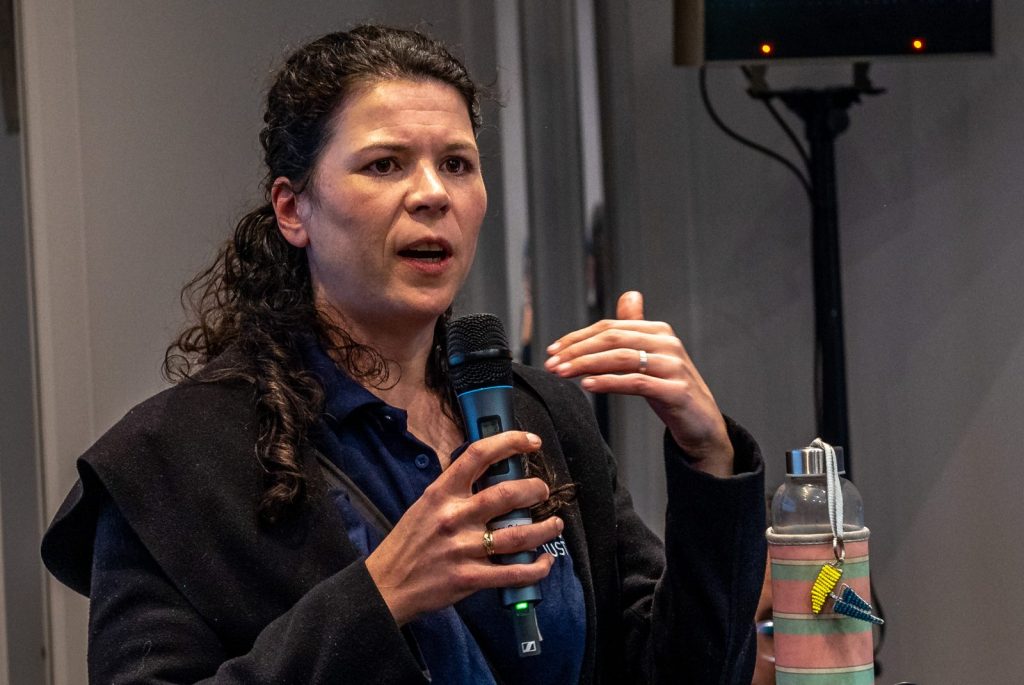
Legal frameworks to protect community rights
The legal framework recognising the right of access to information and public participation on an international and regional level are mentioned below:
International Frameworks:
- Universal Declaration of Human Rights: Article 19 and 21.
- International Covenant on Civil and Political Rights: Article 19 and Article 25.
- Preamble of the Paris Agreement.
- The Resolution recognizing the human right to a clean, healthy and sustainable environment.
- Aarhus Convention: public rights regarding access to information, public participation, and access to justice in environmental matters.
Regional Frameworks:
- African Charter on Human and Peoples’ Rights: right to access information (Article 9) and public participation in governance (Article 13).
- Declaration of Principles on Freedom of Expression and Access to Information in Africa 2019 – Part 1 and Part 3
Challenges to protecting communities within the transition
Although there may be protection and recognition of rights of access to information and public participation in law, the challenge for a just energy transition is that implementation may fall short.
These rights face other challenges, such as information overload and the withholding of crucial information under the guise of protecting national interests. Additionally, consultation processes are often inaccessible to communities, as they are rarely conducted in local languages or in formats that are easily understood.
Furthermore, many people are unaware of their right to access information and participate in public decision-making processes. This lack of awareness leads to a sense of powerlessness, with communities feeling that these processes are beyond their reach and control.
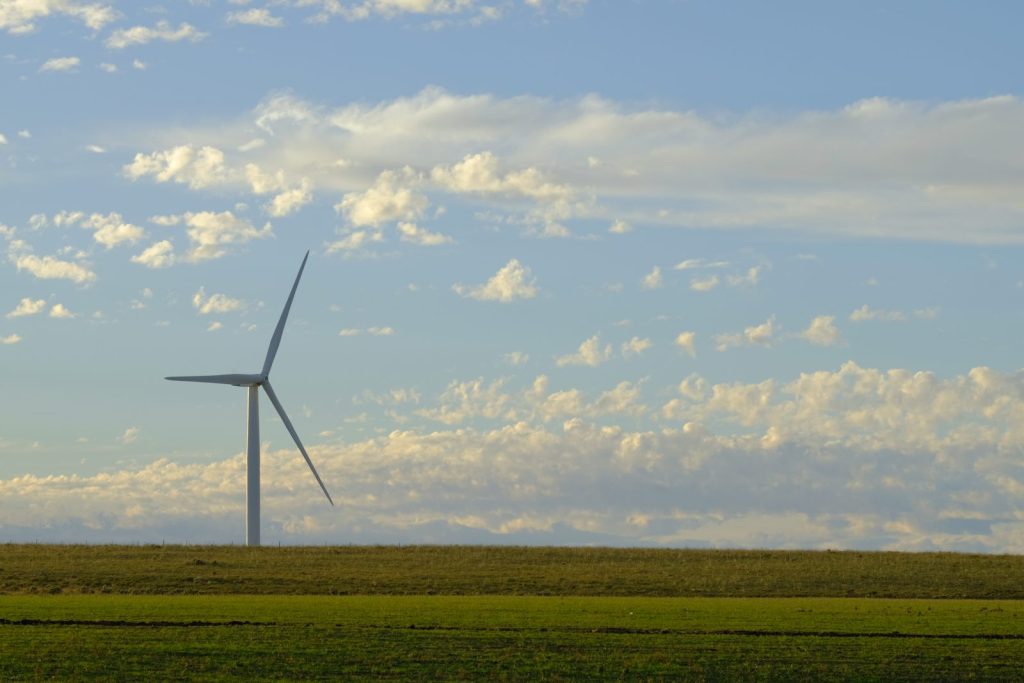
Solutions to public involvement
Effective storytelling is a powerful tool for raising awareness and mobilising action, especially when it highlights the real-world impact on people and communities. Communities, whether opposing fossil fuel projects or advocating for renewable energy, have successfully stalled or stopped projects by sharing their experiences and speaking out. The stories not only amplify the voices of marginalised communities, but also inspire broader public awareness and engagement on these issues.
To achieve a just energy transition, it is essential to implement energy justice principles, including distributive, procedural, and restorative justice. Included in these principles are the rights to public participation and the right of access to information. This ensures that all voices are heard and that the benefits and burdens of energy projects are fairly distributed, fostering a more inclusive and equitable approach to energy development. Systemic change is needed, not just technological fixes. This involves rethinking our economic and social systems to prioritise sustainability and equity.
Empowering people with the knowledge and skills to actively participate in this transition is crucial. Faith leaders are instrumental in mobilising their communities and fostering partnerships between faith-based organisations, impacted groups, and other key stakeholders. By speaking with one collective voice, they can hold decision-makers accountable for their energy policies, ensuring that these policies reflect values of sustainability and justice. Informing people of faith about their rights and energy choices not only strengthens their involvement but also drives meaningful participation.
Public participation and access to information are fundamental to achieving environmental justice and protecting human rights. By involving communities in decision-making processes and ensuring transparency, we can develop more equitable and sustainable solutions to the pressing challenges of climate change and energy transition. This approach not only addresses the immediate needs of those affected but also lays the groundwork for a more just and resilient future. Most importantly, we need to protect the earth we have, for ourselves and for future generations.

